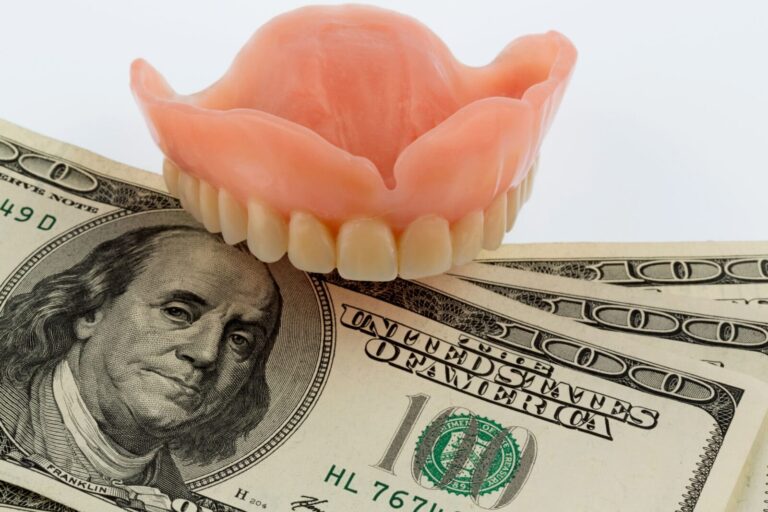We know that dental implants are not cheap. But they can restore your amazing smile and also improve your overall oral health.
And they may even provide a tax benefit for you. In this article we’re going to look at the question “are dental implants tax deductible?”
Because, if so, that can make the cost of getting implants more affordable for some. In some cases, it may even make the difference of whether someone gets dental implants or not.
Taxes are ridiculously confusing. Below, we’ll look at the issue of implants and tax deductions and lay it out for you as clearly as we can in plain, simple English.
So let’s jump in and see if those beautiful new implants can earn you a nice deduction come tax time.
Are Dental Implants Tax Deductible?
The short answer here is yes, they may very well be. It is possible that your dental implants will get you a tax deduction from the Internal Revenue Services. But tax deductions for dental implants are not an automatic thing. And there are certain factors that determine whether you can get a deduction or not.
Certain things such as mortgage interest payments, state and local tax, charitable deductions, and out-of-pocket medical costs are all allowable tax deductions according to the IRS. They fall into the category of itemized deduction.
However, unlike the other types of eligible tax deductible items, there is a catch when it comes to medical and dental expenses.
For medical expenses to qualify for tax deduction, you must spend more than 7.5 percent of your income on medical as well as dental expenses. (This includes ALL your medical and dental expenses together.
What does this mean for the average taxpayer? Well the average person makes about $51,000 every year. So 7.5% of that is $3,820. Any amount above that that you spend on medical and dental expenses is eligible for a tax deduction.
The Medical Expense Tax Credit
This credit is the Medical Expense Tax Credit or METC. The METC is a non-refundable tax credit that you, the taxpayer, can use to reduce the amount of tax that you have to pay.
What medical and dental expenses are a part of the METC? According to the IRS, the payments of fees to healthcare providers such as doctors, dentists, surgeons, mental health doctors, nonmedical practitioners and more. It also includes payments for the diagnosis, treatment, prevention of disease.
What is also included in tax deductibility for medical expenses are payments for treatments for ailments that affect any structure or function of the body. And it is this third category that includes dental implants.
When Dental Implants Are Not Tax Deductible
However, dental implants are not tax deductible if they are only done for cosmetic reasons. This means that if you only want to have a dental implant to improve your appearance as opposed to restore the function of your teeth, then they may not be tax deductible.
Also, if your dental implants are covered by your health or dental insurance, then it will not be tax deductible. The same could be said when it comes to other medical expenses. The deduction only applies to medical/dental expenses you pay out of pocket. You can not deduct anything insurance pays for, or that you use a Health Savings Account for.







